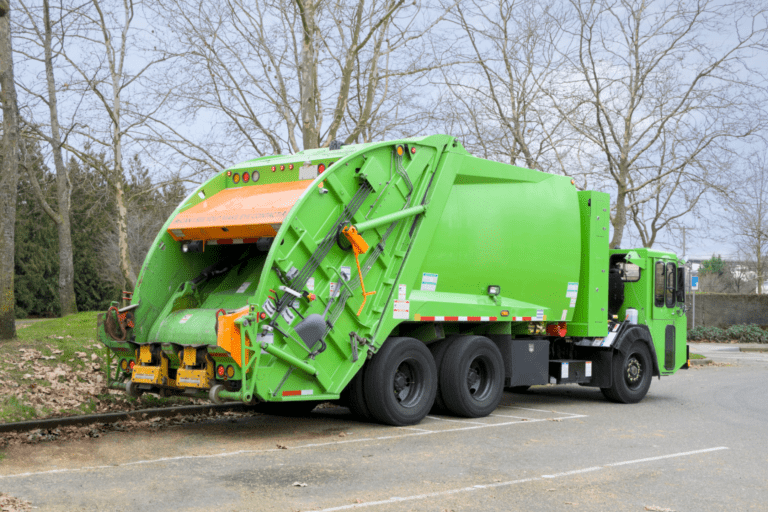Is your fleet prepared for International Roadcheck 2021? This is an annual initiative by the Commercial Vehicle Safety Alliance (CVSA) that aims to raise awareness of the North American Standard Inspection Program and highway safety rules in order to keep the roads safe.
In this post, we’ll cover everything you need to know, including a few tips to ensure your fleet is always ready.
When does International Roadcheck 2021 begin?
International Roadcheck 2021 runs from May 4th through May 6th this year, which is when inspectors in North America will be conducting roadside inspections primarily using the 37-step North American Standard Level 1 Inspection.
Inspections will be conducted during this 72-hour period for all member jurisdictions, and carried out by the FMCSA in the United States.
What to know, and key areas to pay special attention to
While there are focus areas that the CVSA announces to the public each year, it’s important to note as a carrier that these inspections will be no different than standard roadside inspections most are already familiar with, so preparation in all safety areas is key.
This is primarily a data collection exercise for the CSVA since multiple countries are involved, and will bring insight into these important safety areas. Each year, special attention is paid to two specific violation categories that correspond to the main inspection categories: Driver Operating Requirements and Vehicle Mechanical Fitness.
Focus areas selected this year
While inspectors will still be looking for all critical inspection violations as usual, and can place vehicles out of service for anything, the CSVA will be reporting back on these key focus areas for 2021:
- Driver operating requirements – Hours of Service
- Vehicle Mechanical Fitness – Lighting
Quick Fact: The FMCSA reported that in 2020, lamps inoperable accounted for 12.24% of all total violations, equating to 7.56% of all out-of-service orders. For fiscal 2021, lighting still remains at the top of this list.
In addition to these focus areas, here’s a quick rundown of what to be prepared for in the event that a vehicle in your fleet is subject to an inspection.
Vehicle Mechanical Fitness areas to pay attention to:
- Exhaust systems
- Frames
- Fuel systems
- Lighting devices
- Steering mechanisms
- Suspension
- Tires
- Van and open-top trailer bodies
- Windshield wipers
- Emergency exits*
- Electrical cables/systems in engine and battery compartments*
- Seating*
*Applicable to motorcoach, passenger van, and other passenger-carrying vehicles
Driver requirements to be aware of:
- Operating credentials
- Hours of service documentation
- Seat belt usage
Keys to staying prepared for Roadcheck 2021 and beyond
With so many data points that affect not only the safety of your vehicles, but also your drivers, why risk out of service violations due to an ineffective inspections or maintenance process?
The chart below that the FMCSA has made available (relating to Vehicle Violations and Out of Service orders), illustrates a few common issues that can be easily caught using a solution like Whip Around.
How many of these reported violations could your team be preventing with a better inspection process?
To better prepare for Roadcheck 2021, below are 3 important keys to success.
1. Audit your vehicle inspection solution or process
One of the biggest concerns in this industry we hear from our customers is that inspections are often missed by drivers or incomplete. With the wrong solution in place, pencil whipping these reports is usually pretty a widespread practice, as well as drivers selecting the ‘no defects found’ button without a proper walkaround inspection being performed.
If this sounds all to familiar, it’s probably time to audit the tools or processes you have in place.
2. Use the Whip Around app to ensure vehicle inspections are completed and retained
When it comes to important inspection items like lighting, too many solutions (including paper forms used by many fleets) simply don’t do a good job of ensuring these types of issues are noticed.
With the Whip Around app, fleet managers are able to view any outstanding pre or post-trip inspections to be completed each day, as well as complete information captured by drivers using the Whip Around app.
3. Ensure you are staying in compliance with your inspection process
In the event that a roadside inspection occurs, are you confident that vehicles in your fleet have been inspected and repaired, with the records to prove it?
A DVIR solution like Whip Around also helps to ensure you remain DOT compliant, by making sure all of the important aspects of the inspection process are completed properly.
For example, as part of §396.11 as outlined by the FMCSA, mechanics must certify that a defect has been repaired, or the vehicle is safe to operate without the repair. In addition, having your drivers sign off on previous repairs, and certify their daily DVIRs with a signature is also required.
Don’t wait for fines or penalties to prompt a change in your process —Start today
The FMCSA’s number one vehicle violation in fiscal 2020? Lamps inoperable. If small details are routinely being missed by your drivers, or your system isn’t holding team members accountable, it’s time for a better solution.
With a simple and easy to use mobile app for drivers, combined with an easy to use platform fleet managers and mechanics love, Whip Around is making worrying about roadside inspections a thing of the past.
Request a demo today for a complete walkthrough with a product specialist to see how Whip Around can keep your fleet prepared and compliant.
Looking to evaluate or launch a fleet safety imitative internally? Get your free copy of our eBook: How to Create a Fleet Safety Strategy: A Manager’s Roadmap.










